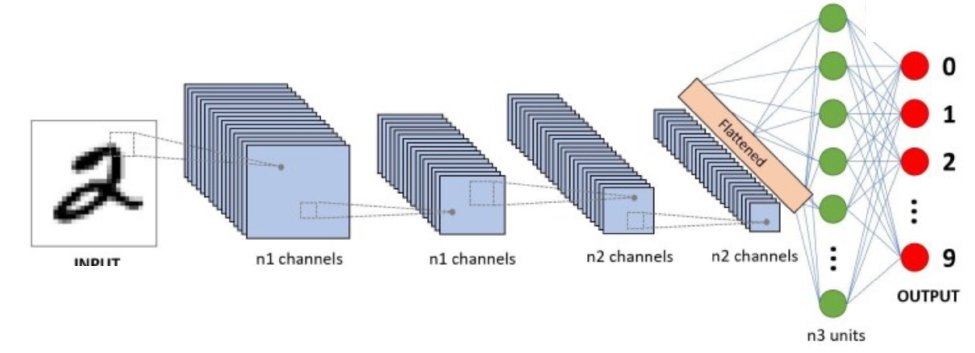Deep Learning workshop
Course overview
Deep Learning covers a vast set of algorithms based on neural networks. They gained popularity recently because they suceeded in solving a broad range of tasks that were extremely difficult to achieve only a decade ago. Nowadays, these algorithms can tackle classification, prediction, or simulation tasks. They are used to predict discharge rates in karstic springs, generate realistic images of porous media, classify geological and geophysical images, detect features on remote sensing data, or identify non linear relations in complex data sets (to cite only a few examples). The field of Deep Learning is highly dynamic because the libraries, scientific papers, and training datasets are most often available on open access platforms.
The image above contains for example a simulation obtained with deep learning and a tomography of an oolitic limestone (source: https://doi.org/10.1007/s11242-018-1039-9).
The aim of this course is to introduce the fundamental principles of the main Deep Leaning approaches for Supervised and Unsupervised Machine Learning. The course is a combination of interactive lectures, exercises and Python code demonstrations. The objective is to enable the participants to master the concepts and get acquainted with the tools so that they can start using them for their own applications or projects. The course will not focus on specific applications but rather give a broad introduction to this field.
Detailed course content
See schedule page.
Instructor
Until 2020, Olivier Dubrule was the leader of the Machine Learning module of the Applied Computational Science and Engineering MSc Program at Imperial College London. His recent research interest has been Generative Adversarial Networks, on which he co-authored a number of papers. Before getting involved in Deep Learning, Olivier had a career in the oil industry during which he was Director of the Total Geoscience Research Centre in Aberdeen (UK) and the Total Research Centre Qatar. Olivier has authored two books on Geostatistics, and is a former Distinguished Lecturer of the Society of Exploration Geophysicists (SEG). He was the 2004-2005 President of the European Association of Geoscientists and Engineers (EAGE).
Prerequisites for attending the course
Linear Algebra, Probability and Calculus are the pillars on which Deep Learning is built. A basic knowledge of the three topics is important to attend the course. A knowledge of one programming language, preferably Python, is useful but not mandatory.
Date, location and practical information
- Date: From January 13, 2021 to January 20, 2021
- Duration: 6 days (with a week-end right in the middle)
- Schedule: 9 am to 4 pm every day
- Maximum number of participants: 30
- Location: University of Neuchâtel, 2000 Neuchâtel, Switzerland
- Registration cost: 1400 CHF for professionals / 700 CHF for students / free for students belonging to the PhD School Water Earth Systems
New ! August 18, 2020 : The total number of registrations is larger than the maximum mumber of participants, you can still register here but you will be on a waiting list. Sorry for this inconvenience.
Do not hesitate to contact us by email for any question: philippe.renard@unine.ch
Detailed course content
See schedule page.

Image source: https://mc.ai/convolution-neural-network-the-backbone-of-image-classification


